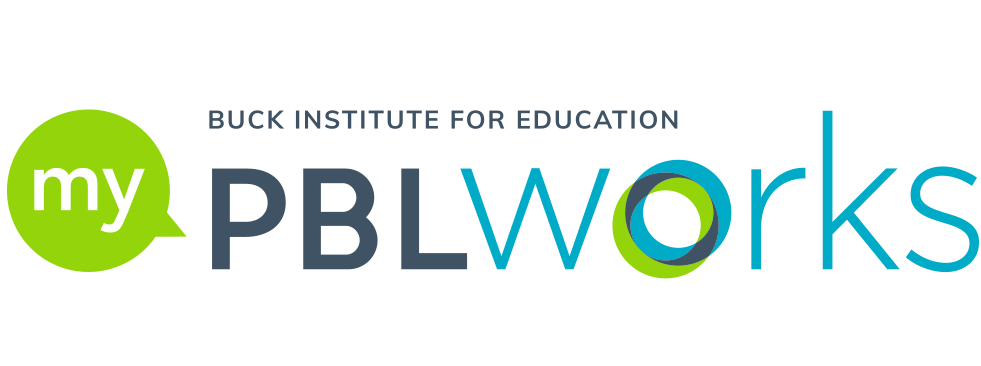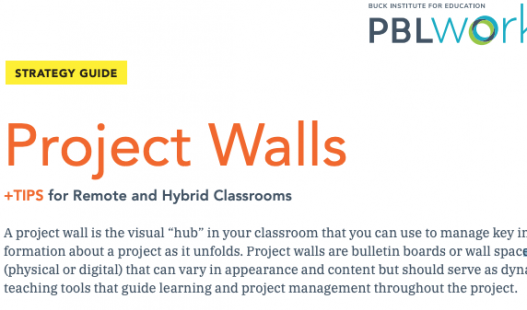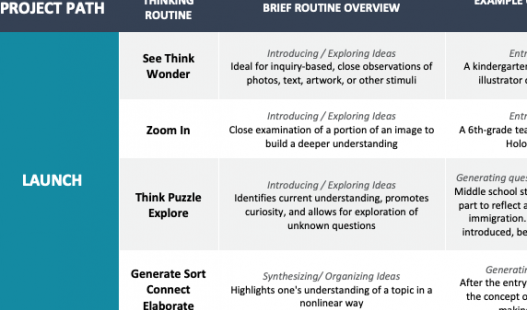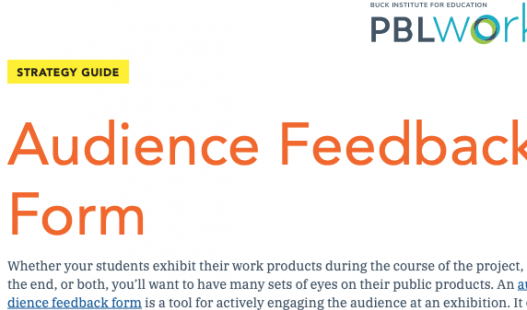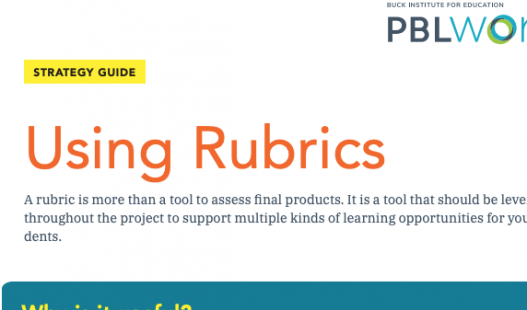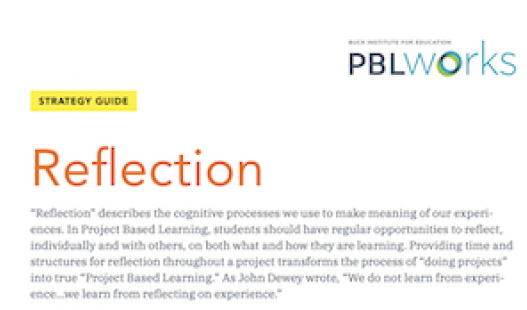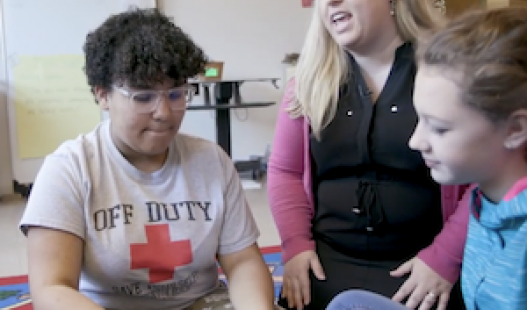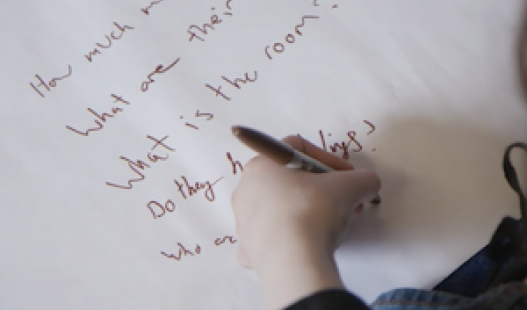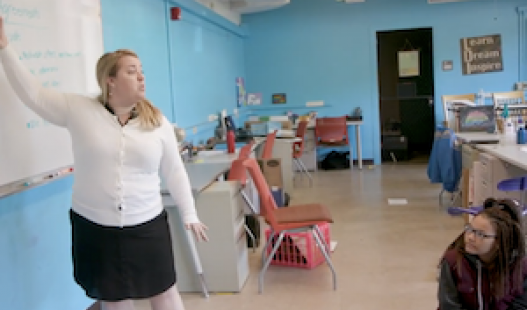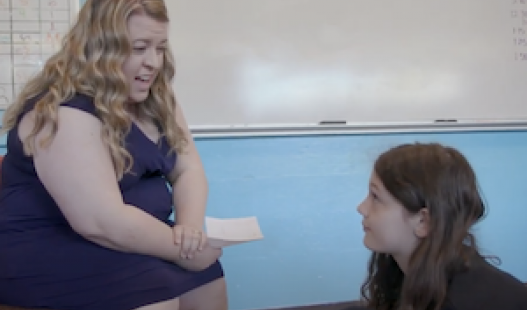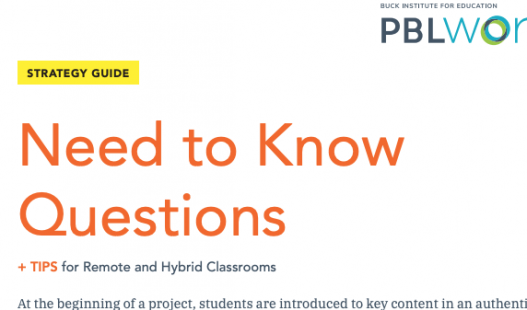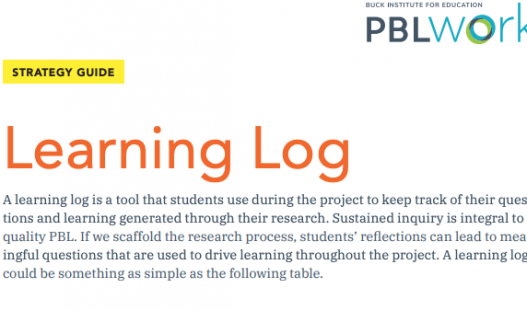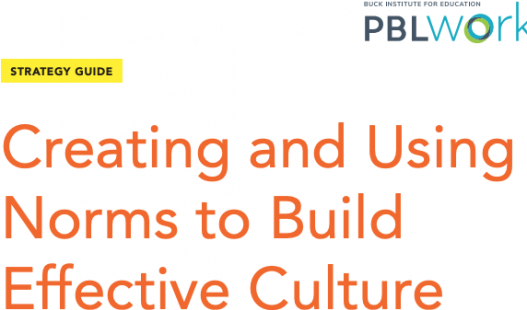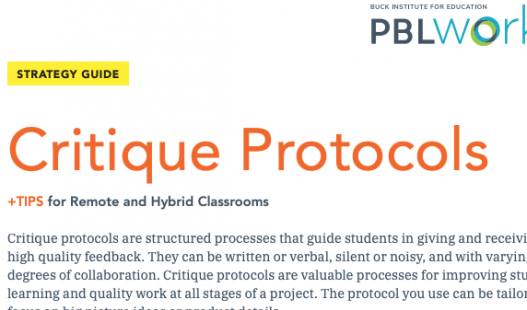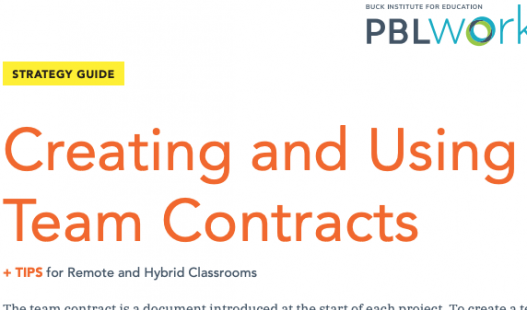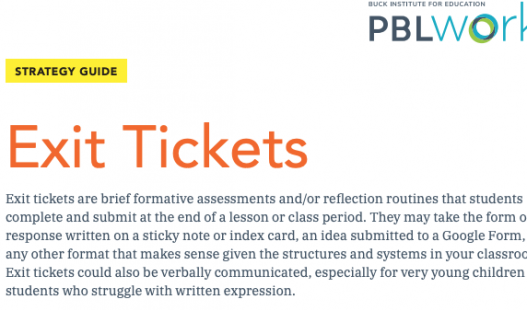49 Results
Using models of quality work is a powerful strategy for Gold Standard Project Based Learning.
How to use project walls to manage and display student learning in the classroom.
This table shows some examples of how teachers used thinking routines in PBL units.
Ron Berger explains how his classroom culture helped students create high-quality products.
Overview of the why and what of PBLWorks' new model for designing rigorous, engaging projects.
Effective preparation for presentations helps students build project management, collaboration, and communication skills and ensures that their presentations are high-quality and impactful.
Whether your students exhibit their work products during the course of the project, at the end, or both, you’ll want to have many sets of eyes on their public products. An audience feedback form is a tool used to actively engage the audience at an exhibition.
A rubric is more than a tool to assess final products. It is a tool that should be leveraged throughout the project to support multiple kinds of learning opportunities for your students. This guide offers strategies for using rubrics to aid learning at each phase of a project.
In Project Based Learning, students should have regular opportunities to reflect, individually and with others, on both what and how they are learning. This guide provides a framework and strategies for supporting reflection on learning throughout a project.
At the beginning of the project, students are introduced to key content in an authentic context via a stimulus or hook, which in PBL we call an entry event.
High school students reflect on their experience of Project Based Learning.
A learning log is a tool that students use during the project to keep track of their questions and learning generated through their research. This guide offers strategies for teaching students to use learning logs to support inquiry throughout a project.
Norms are the agreed upon rules that build a productive, self-driven, and respectful culture. These norms, especially when co-created with students, can serve as the “north star” or guiding philosophy for all that happens in a classroom.
Critique protocols are structured processes that guide students in giving and receiving high quality feedback. This guide offers strategies for implementing peer critique protocols that enhance learning and improve the quality of student work.
The team contract is a document introduced at the start of each project that asks project teams to think through and agree on how students will individually contribute to the team, how the members will work together, and how problems will be solved when they arise.
Exit tickets are brief formative assessments and/or reflection routines that students complete and submit at the end of a lesson or class period. This guide includes strategies for using exit tickets to support assessment and reflection within the context of PBL.
